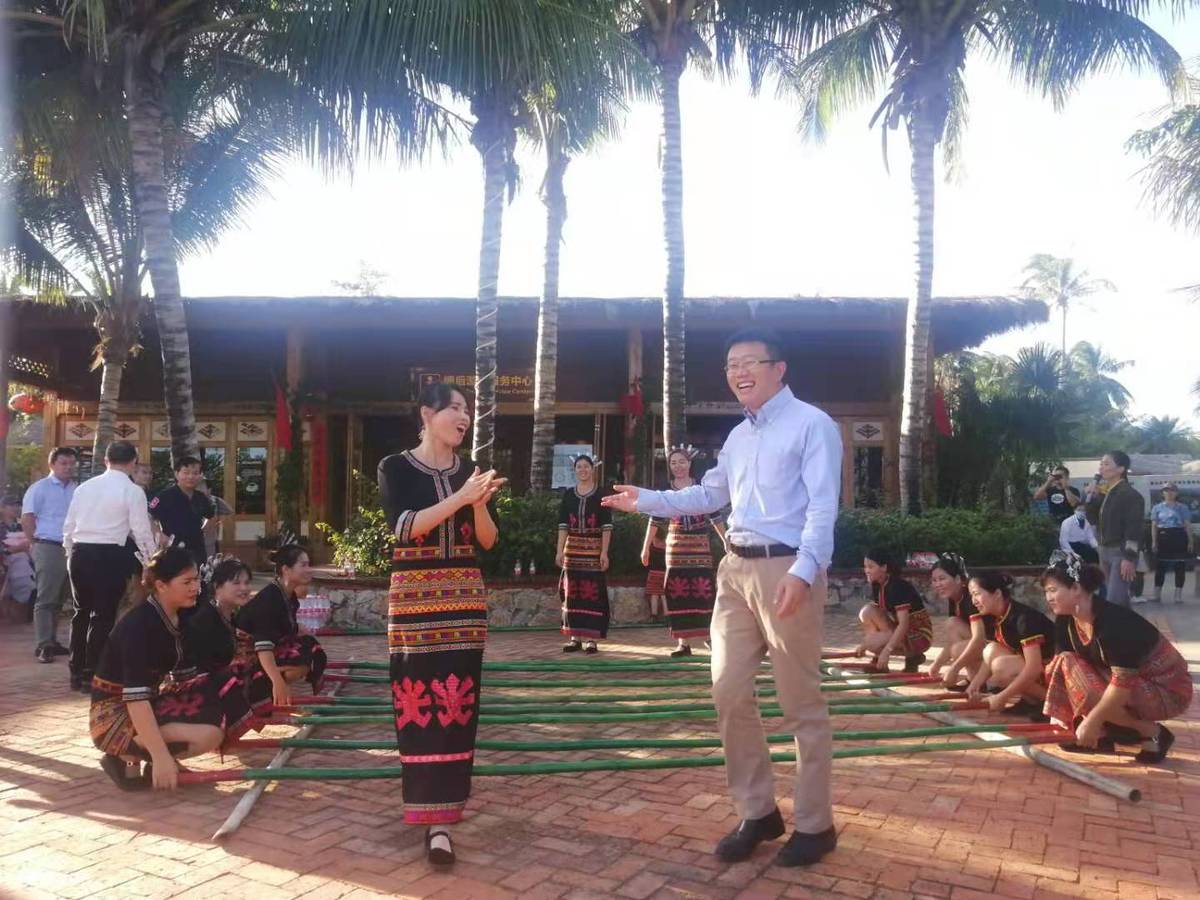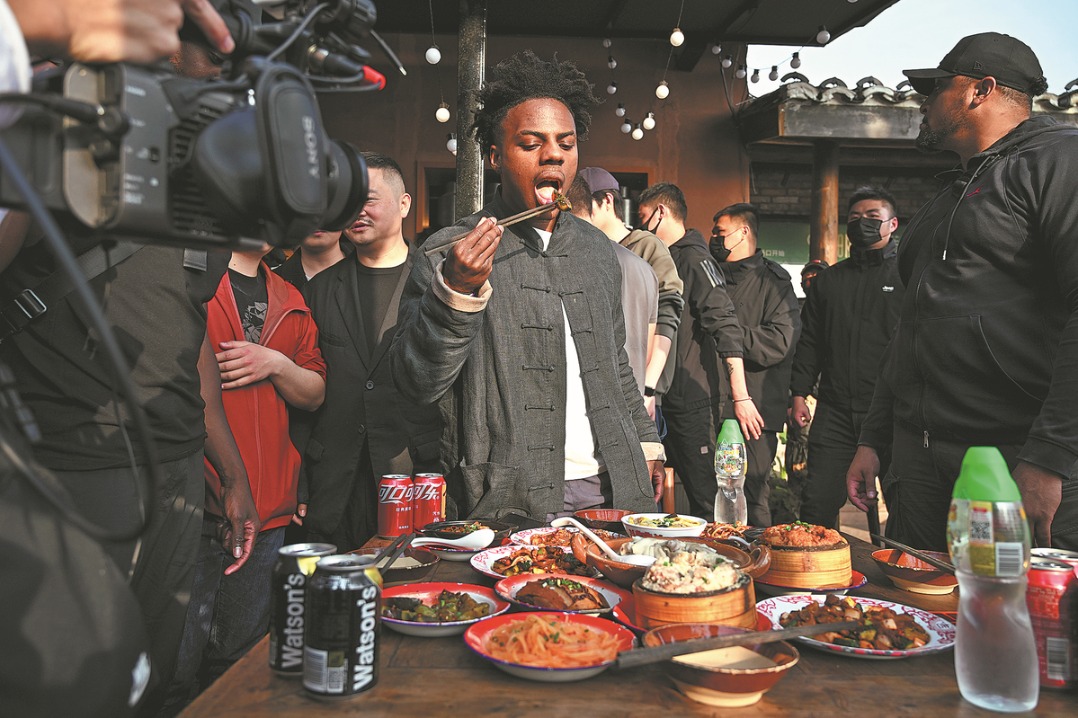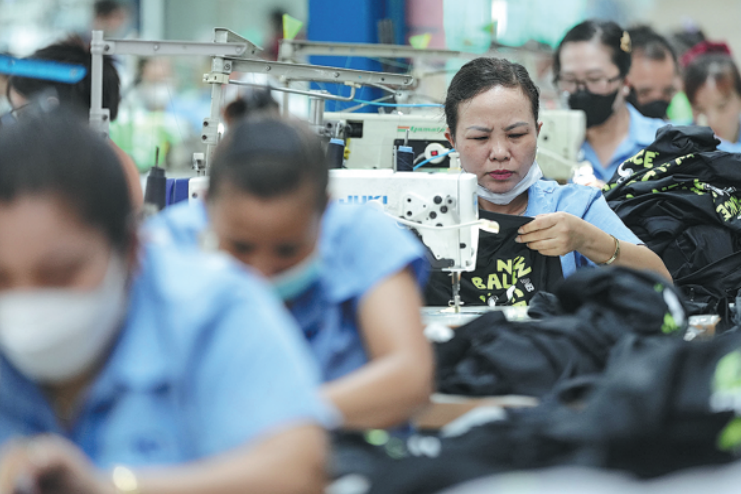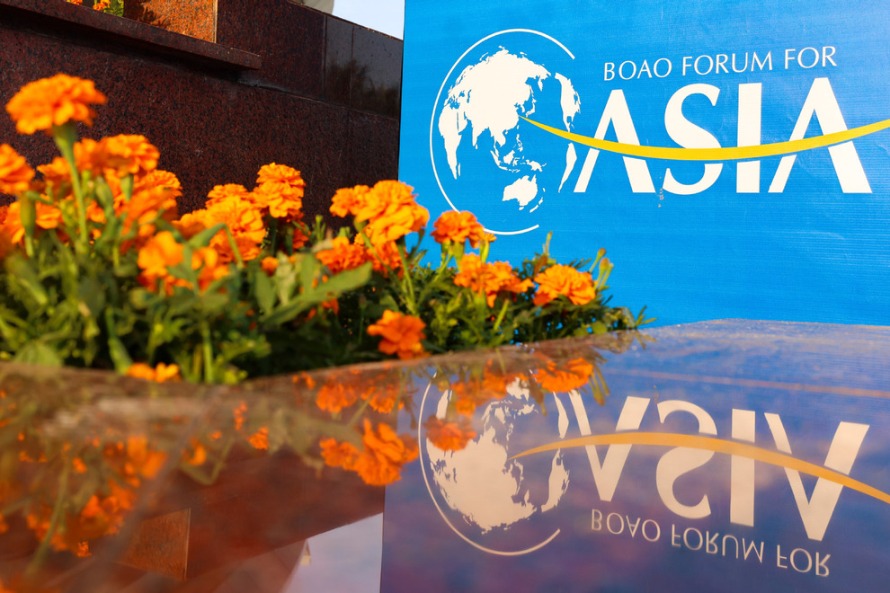Bohou people follow path to moderate prosperity
By Li Renda | chinadaily.com.cn | Updated: 2020-12-10 14:49

"Whether Xiaokang is realized or not, only the ordinary folks can tell," said Chinese President Xi Jinping on April 9, 2013, when he dropped in on Bohou village. China will eradicate absolute poverty by 2020. Now, as the clock ticks toward the latest time, how did Bohou village eradicate absolute poverty? What progress has this village achieved?
Bohou village is located in Sanya Yalong Bay. There are several attractions around Bohou village, such as the rose valley, forest park and Yalong Bay outlets. Although this village has a superior location, the process of its development was not very smooth.
1993 marked the start of efforts to take advantage of Yalong Bay with the construction of opulent hotels. From then on, villagers started to work for the hotels in positions such as attendants, cleaning workers, drivers and security personnel.
The Yalong Bay hotel business became better, generating more leftover food. Then hotel workers found an opportunity to make money -- using the free leftovers to raise pigs. Subsequently, many hotel attendants and villagers turned into pig farmers.
After more than 20 years, the breeding of pigs brought wealth as well as much wastewater, creating an unpleasant odor in the rural areas. Fresh air and clean groundwater soon climbed the ranks of most villagers' wish lists. Fortunately, the turning point in the development of the village was coming.
On April 9, 2013, President Xi dropped in on Bohou village and made a statement that later became a catchphrase: "Whether xiaokang is realized or not, only ordinary folks can tell." The enthusiasm of the Bohou people had just been ignited.
Along with the construction of infrastructure initiated and invested in by the local governments, more and more villagers were devoted to village restoration, including demolishing pigsties, treating wastewater, building parks, and installing running water pipes and sewer lines.
The environment of the village was improving, and subsequently the means of a new livelihood occurred - bed-and-breakfast establishments, which have been springing up in the village. Up to now, the number of such places in Bohou has increased to 46. They can provide more than 1,500 guest rooms. These B&Bs are very inexpensive and cozy.
The price of Hinajie Homestay -- the first B&B in the village -- is only about $40 per night, while rooms may go for more than $200 in a luxurious coastal hotel. And in order to serve customers better, almost all the B&Bs in the village can provide a sleek, modern kitchen for guests at a low cost. So, lots of travelers, especially young couples, like to come Bohou village to enjoy their time in Yalong Bay.
All the Bohou B&B establishments received a total of 23,400 visits and and generated tourism revenue of 18 million yuan ($2.75 million) from Oct 1 to 8, according to the Bohou Homestay Association.
The earnings of the villagers have been more stable thanks to being in the hospitality business. In addition to the incomes and salaries created by B&Bs, the villagers can also make money by selling regional specialties in the market stalls.
From raising pigs to feeding travelers, the annual per capita income of villagers has increased from over 5,000 yuan in 2013 to 24,500 yuan in 2019. There are no registered poverty-stricken individuals in Bohou village. This village has eradicated absolute poverty. Bohou people follow the path to moderate prosperity.
The author is an associate professor of Law at Hainan Provincial Party School and a Bohou village-stationed official.
If you have a specific expertise and would like to contribute to China Daily, please contact us at opinion@chinadaily.com.cn, and comment@chinadaily.com.cn
























